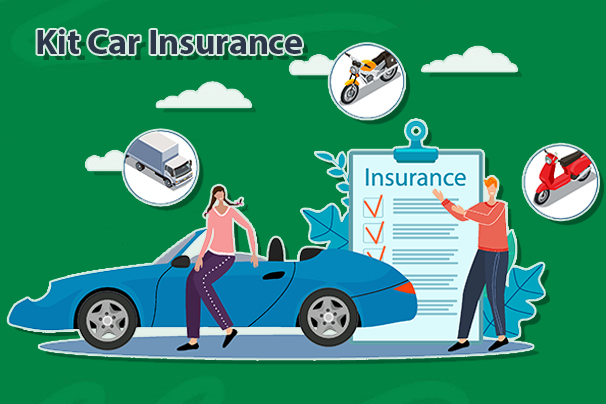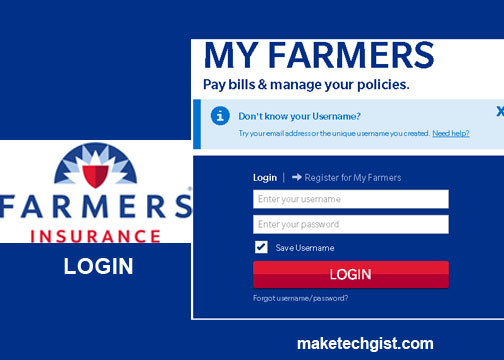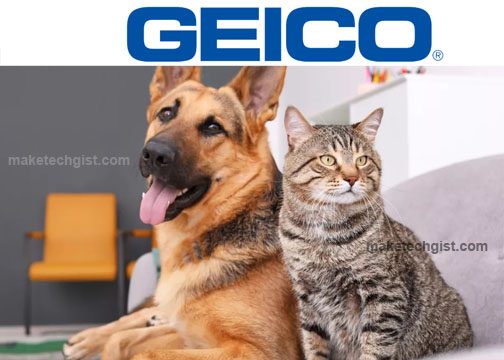Kit car insurance is made for cars that you construct yourself. Seeking advice from an expert is worthwhile since regular auto insurance is insufficient to safeguard these unusual automobiles. In addition, kit car insurance also offers a number of additional advantages to customize your policy to the conventional coverage against theft, fire, and unintentional damage.

Constructing a kit car from the ground up is an absolute labor of love. Moreover, your priceless asset has to be registered, taxed, and financially protected with kit car insurance before you can drive it. Kit cars may be a more cost-effective option for you to acquire the vehicle of your dreams because they are sometimes exact reproductions of vintage sports cars.
Types of Coverage Used for Kit Car Insurance
There are three different kinds of coverage that are frequently utilized. The worth of your car and if you’re financing it will determine the coverage you need:
Liability
This insurance pays for a third party’s losses or injuries if you are at fault for an accident and is mandated in practically all states in the United States.
Collision
Collision insurance pays for any harm resulting from a collision, no matter who is at fault, as well as any harm resulting from striking a stationary object like a fence or tree.
Comprehensive
Comprehensive insurance will pay for any losses brought on by weather, fire, theft, or vandalism, among other events beyond the driver’s control.
Moreover, classic or collectible cars come with various coverage options, including roadside assistance, travel insurance, auto show medical, no attendance coverage, and spare parts insurance. In addition, roadside assistance includes flatbed or covered towing to prevent damage.
What’s Covered with Kit Car Insurance
Whether you purchased a kit vehicle as a one-time project or an ongoing hobby, we are aware of the unique insurance requirements replica owners have. Among the advantages of coverage provided by some providers are:
- Restricted savings on mileage
- Member savings for classic car clubs
- Track day and rally provide up to 90 days of EU protection.
- Closed-down cover 24-hour hotline for claims
- Agreed valuation for two years (from £18)
Additional benefits beyond the basic coverage can be included with adaptable providers. Furthermore, you can have a conversation with the experts about enhancing your policy with accidental damage coverage or breakdown recovery.
Eligibility Criteria for Kit Car Insurance
The criteria may vary based on your circumstances because every rare automobile and its insurance are distinct. In addition, the following are the most typical requirements to obtain classic or collector vehicle insurance:
Mileage
You will not be allowed to get your automobile insured as a vintage or collectible car if you drive it for your regular commute. A collector car’s typical yearly mileage limit is between 5,000 and 7,000 kilometers. Your insurance provider will establish this amount, which may be less than $5,000.
Age
Your automobile must be older than 25 years old in order to qualify for collector auto insurance.
Driving Record
Insurance companies may decline to cover a car of such high worth if you have a history of at-fault collisions or moving infractions. A few insurers will consider your driving history over the previous ten years. Having even one accident within the last three years may prevent you from obtaining insurance.
Storage
Insurance companies frequently insist on a covered garage for the storage of your valuable collector car. Your automobile is more vulnerable to weather damage and vandalism if it is kept in an open driveway or parking lot since it is exposed to the elements. You could have to pay for a storage unit if you don’t have enough room to store your automobile.
Finally, insurance companies may decline to insure you if your kit car has been in an accident or if it is intended for high-risk activities like off-roading.
How Much Does Kit Car Insurance Cost?
The cost of kit car insurance varies widely since each one is so different, just like it does for other kinds of auto insurance.
The subjects of your quotes will be:
- Your age
- Your record when driving
- Your residence value of your car
- Create and model
- Physique
- Engine details
- Mileage per year
- Where you park your automobile for the night
- Extras that are optional
Any changes you make to your kit vehicle will also need to be disclosed to the insurance company, as they may have an impact on your rates. You can lose your coverage and be unable to file a claim if you don’t tell your provider.
You must also disclose to your insurance whether you intend to use your kit vehicle on public roads or on racetracks.
How Long Does it Take to Build a Kit Car?
This question lacks a straightforward response. It all depends on what kind of kit vehicle you want, how much time you have to devote to it, and how comfortable you are assembling a kit from the ground up.
Additionally, you may decide to alter the kit, which might lengthen the construction process. For instance, Westfield claims that building a kit without specialized knowledge takes about 120 hours; however, that time may vary significantly based on the aforementioned factors.
How Do I Get Kit Car Insurance?
The construction of kit automobiles varies greatly, which makes the insurance procedure difficult. This means that because most traditional insurance companies don’t provide it, getting kit vehicle insurance isn’t always simple. You may, however, get in touch with industry-experienced experts who specialize in the area.
They will want certain information from you, such as the history of your claims. They’ll also want to know the brand, model, and size of the engine in your automobile, as well as your current construction status.





